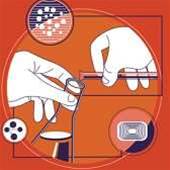
Called 'graphene', the substance will revolutionise the computer industry, allowing transistors to be built on a far smaller scale than today. The team has already used the substance to build a transistor for single electrons.
"To make transistors at the true-nanometre scale is exactly the same challenge that modern silicon-based technology is facing now," said research leader Dr Leonid Ponomarenko at the University of Manchester.
"The technology has managed to progress steadily from millimetre-sized transistors to current microprocessors with individual elements down to tens of nanometres in size.
"The next logical step is true nanometre-sized circuits and this is where graphene can come into play because it remains stable, unlike silicon or other materials, even at these dimensions."
The team has also had considerable success in manipulating the material, slicing it into strips several nanometres thick and with the potential to produce a single line of carbon atoms.
"This is a completely new type of technology. Even nanotechnology is not the right word to describe these new membranes," said Professor Andre Geim, director of the Manchester Centre for Mesoscience & Nanotechnology.
"We have made proof-of-concept devices and believe that the technology-transfer to other areas should be straightforward. However, the real challenge is to make such membranes cheap and readily available for large-scale applications."

.png&h=140&w=231&c=1&s=0)








 iTnews Benchmark Awards 2026
iTnews Benchmark Awards 2026
 iTnews Executive Retreat - Security Leaders Edition
iTnews Executive Retreat - Security Leaders Edition
 iTnews Cloud Covered Breakfast Summit
iTnews Cloud Covered Breakfast Summit
 The 2026 iAwards
The 2026 iAwards











_(1).jpg&h=140&w=231&c=1&s=0)



